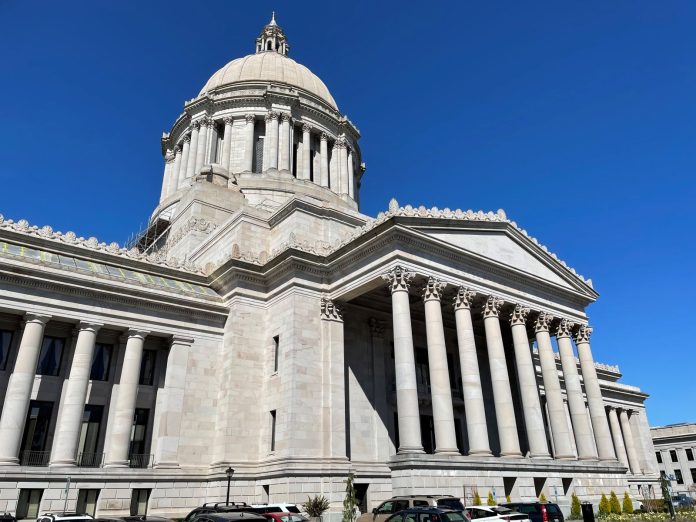
Taxing the rich works like a charm.
Last week we learned that the capital gains tax — which was passed by the state legislature in 2021 to fund much-needed childcare and public education — will bring in nearly $601 million more in state revenue than previously projected in the biennium.
For decades, the wealthiest Washingtonians have gotten out of paying what they truly owe in state and local taxes. It’s worth taking a moment to reflect on this stride toward a more progressive tax system in our state, and the court case that almost rolled it back.
One of the first lessons is that our state’s richest residents are much, much richer than we understood — and they are continuing to get richer at a faster rate than previously assumed.
According to the Department of Revenue, just 1,200 tax returns and 2,500 extensions represent the households paying the new 7% capital gains tax on profits over $250,000 gained from selling stocks and bonds. And despite high interest rates and a stock market that contracted by 25% in 2022, these capital gains tax payers would have had to rake in billions more in passive profits from their stockpile of wealth last year.
Among that group of tax filers were a few individuals who filed a lawsuit in an attempt to roll back the new tax: but in early March, the State Supreme Court ruled that the lawsuit had no merit.

The landmark decision and the case put forward by the tax dodgers lends us our second lesson: the tired arguments used to defend the rich from paying their share of taxes should be put to rest.
The plaintiffs in that case essentially argued that their capital gains were their income, which they alone earned, and therefore should not be subject to the tax.
But working people know that private wealth is built on public infrastructure and public investments paid for by all of us — especially low-income folks who pay more than their share in taxes. The roads and the transportation system corporate executives use to get goods to market, the schools and universities that train their workers, and the regulation and safety systems they rely on build the wealth of the people who live and do business in our state.
When I studied accounting in college, I volunteered to help low-income families file their taxes. I sat down with bus drivers, hotel workers, and childcare providers and the rate that they had to pay in taxes astounded me. It was far more than their share, especially when the richest people in our state, like Jeff Bezos and Bill Gates, have armies of accountants working to find tax loopholes and write-offs.
Those accountants don’t have to look too closely, because our tax system has been set up to benefit the very rich. Here in Washington State, we fund most public services with sales, property, and business and occupation taxes. Most of the people I know and grew up with live paycheck to paycheck. And those working class people pay a higher percent of their income in sales tax and property taxes through their mortgages and rent payments. As a result, the lowest income earners pay nearly six times the rate of state and local taxes as the highest earners in Washington.
As the executive director of Washington Community Alliance, I’m proud of my coalition members who advocated for the capital gains tax to level the playing field of our tax laws and joined an amicus brief to support having it upheld in court.
The capital gains tax, and the State Supreme Court’s decision to uphold it, is already working to right the wrongs of Washington State’s tax code that have plagued us for over 90 years.
Most voters want the ultra-wealthy to pay what they owe. Every person — no matter where they live or the size of their bank account — deserves access to basic amenities and opportunities. Every family will have what we need to thrive when we make the ultra-wealthy contribute back as much as they take advantage of the public investments all of us fund. How will we know when we’ve succeeded? When the next accounting undergrad volunteers for tax season and sees that those with the least are no longer contributing the most.
Kamau Chege is the Executive Director of of the Washington Community Alliance, a statewide coalition of dozens of organizations of color building multi-racial social democracy in Washington State. He serves on the board of Northwest Immigrant Rights Project and Balance Our Tax Code.

